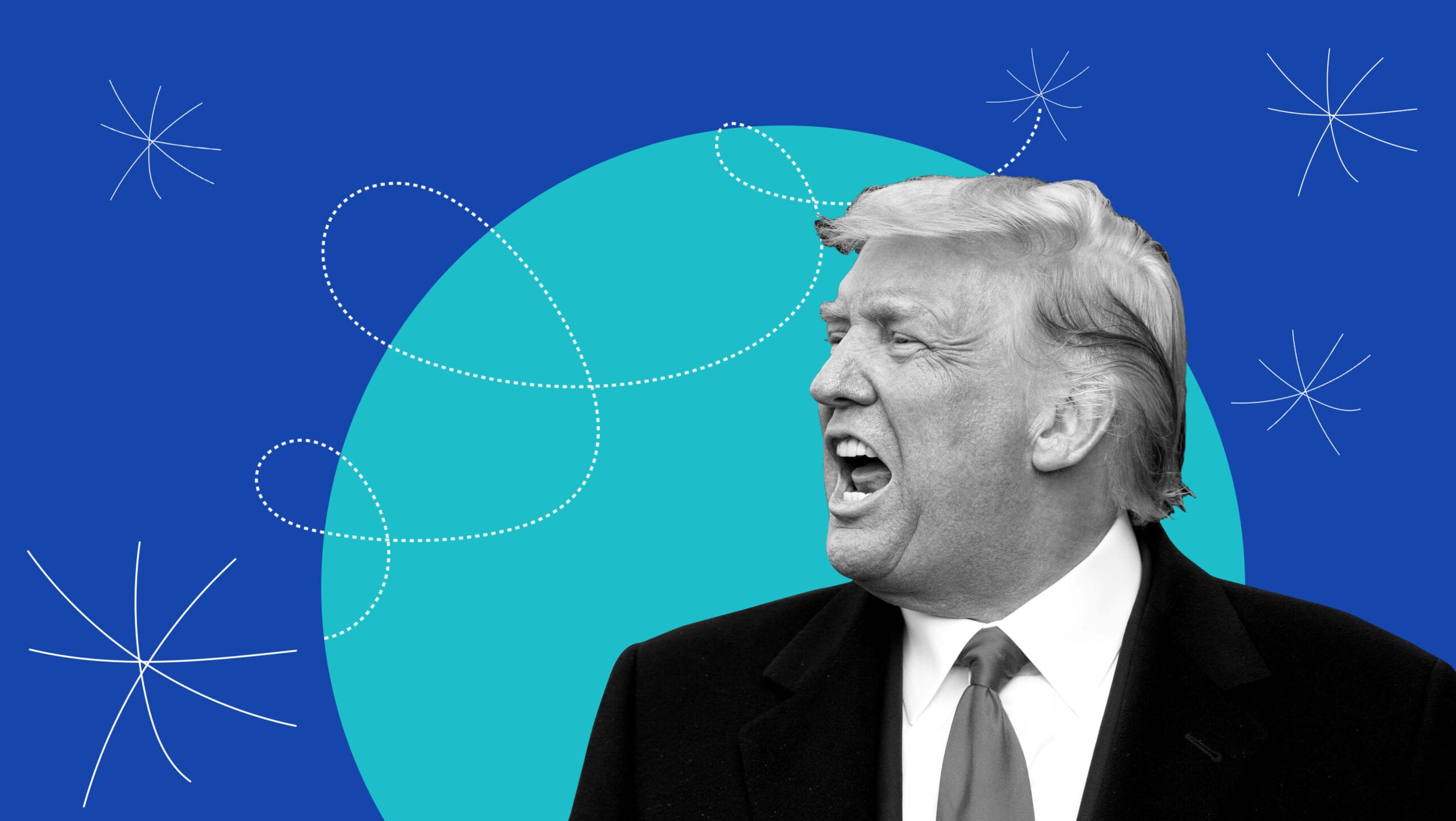In a year that has been filled with surprises, the final U.S. presidential debate last Thursday brought none—unless you count the appearance of a mute button for a president that needs to be treated like a toddler. While President Donald Trump didn’t have the opportunity to interrupt former vice-president Joe Biden 128 times—like he did in the first debate—he continued to spread lies nonetheless. With the U.S. entering a third wave of the COVID-19 crisis with record-breaking cases across the country, Trump told Americans we were rounding a corner. But right now, it feels more like heading over a cliff: At the time of publication, more than 220,000 Americans are dead, close to 9 million are infected. The White House Chief of Staff Mark Meadows says the government will not “control the pandemic,” and the president has suggested that a vaccine is on the way while credible doctors and scientists have told us that this will take considerable time.
Given the opportunity to present a case for why he deserves another four years in the White House, Trump failed miserably. He instead used both presidential debates to smear Biden’s four-decade career of public service. What else can be expected from a man who entered office and immediately began destabilizing the lives of the LGBTQ2S+ people and people of colour—the most vulnerable among us?
Since Trump assumed office in January 2017, we have watched Secretary of Education Betsy DeVos roll back protections for LGBTQ2S+ youth in schools, making them once again susceptible to discrimination. We have seen patriotic trans people kicked out of the military—even after military leaders said there was no need and that the military has adapted to their open inclusion. We’ve seen the president’s administration threaten the safety and health care of trans and non-binary people.
Now, between the pandemic and the looming threat against LGBTQ2S+ rights and protections, the stakes ahead of next week’s election have never been higher for queer and trans Americans.
“What else can be expected from a man who entered office and immediately began destabilizing the lives of the LGBTQ2S+ people and people of colour?”
Here’s what a Trump win could bring: He and his Republican ilk are working overtime to secure a Supreme Court Justice and rip away health care from 20 million Americans. Before the Affordable Care Act (ACA) was enacted by former president Barack Obama in 2010, 34 percent of LGBTQ Americans making $45,000 a year were uninsured. That number has dropped to 16 percent over the last several years with the ACA. Guidelines in the act also cover pre-existing conditions and non-discrimination protections on the basis of sexual orientation and gender identity. Imagine the overt callousness and cruelty one must embody to actively work to take away health care from millions of people in the midst of a global health pandemic. As Obama mentioned in his speech this week, Republicans have been at this for 10 years and yet have presented no alternative.
This month, we also watched as Trump’s conservative Supreme Court signalled to right-wing conservatives a path to repeal marriage equality when they declined to hear a case from a Kentucky clerk who refused to issue marriage licences on the grounds that it was against her religion. Writing in his statement, Supreme Court Justice Samuel Alito declared that the court’s decision “enables courts and governments to brand religious adherents who believe that marriage is between one man and one woman as bigots, making their religious liberty concerns that much easier to dismiss.” He also wrote that the historic Obergefell v. Hodges decision, which made gay marriage the law of the land, “provided a stark reminder” to the consequences of giving LGBTQ2S+ Americans the same rights as their straight peers.
“As a nation, we have barely survived the last four years under Trump’s oppressively homophobic and transphobic regime”
In an odd turn of events (which are, frankly, on par with the rest of the madness of 2020), both the defendant and the plaintiff in the Kentucky clerk case united once more—this time on the same side to oppose the upcoming confirmation of Amy Coney Barrett to the Supreme Court bench.
Each election cycle hears a recurring cry for action: That so much is at stake, that we need to vote for our lives. But when we look at Trump’s continued assault on LGBTQ2S+ people, we know that this time is different. As a nation, we have barely survived the last four years under Trump’s oppressively homophobic and transphobic regime. The LGBTQ2S+ community has fought for decades to receive the same rights, respect and dignity as their heterosexual counterparts and we’re watching daily as these rights are rolled back. If Trump is able to steal another four years, there is no telling what will happen to our community.
The presidential debates presented two very different visions for the future of America—one where we exist, and one where we are forced further to the margins. Every election is important, but this one has lives on the ballots. We must make the decision to vote or die.


 Why you can trust Xtra
Why you can trust Xtra


